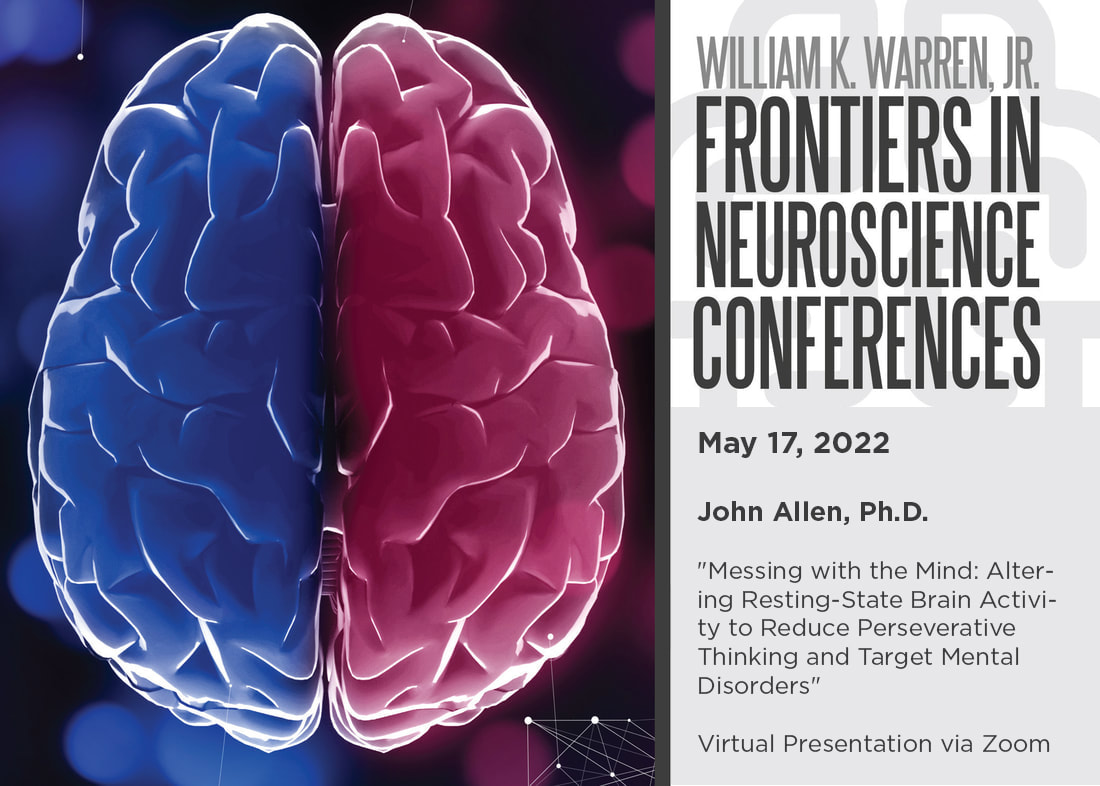|
John Allen, Ph.D. - May 17, 2022
"Messing With the Mind: Altering Resting-State Brain Activity to Reduce Perseverative Thinking and Target Mental Disorders" William K. Warren, Jr. Frontiers in Neuroscience Lecture 12:00 pm - 1:00 pm (Virtual) Join Zoom Meeting: https://laureateinstitute-org.zoom.us/j/86986926864 Meeting ID: 869 8692 6864 Passcode: 732799 John JB Allen is Distinguished Professor of Psychology, Cognitive Science, and Neuroscience at the University of Arizona in Tucson Arizona. After receiving his undergraduate degree under the mentorship of Loren and Jean Chapman at the University of Wisconsin – Madison, he completed his graduate training with Bill Iacono at the University of Minnesota. Following the completion of his clinical internship at the VA medical center in Minneapolis, he assumed his current position in Arizona in 1992. He has published over 180 peer-reviewed scientific papers, and been the recipient of grants from the National Institutes of Health and from the National Alliance for Research in Schizophrenia and Depression to fund his research. He has received numerous awards for his research, including the Distinguished Early Career Award from the Society for Psychophysiological Research and the Alexander von Humboldt Foundation Research Prize, as well as numerous awards for his teaching including the Graduate College and Professional Education Teaching and Mentoring Award, and designation as University Distinguished Professor. He is a Fellow of the Association for Psychological Science, and a past-president of the Society for Psychophysiological Research. His research interests encompass several areas, but he is interested broadly in identifying neural systems that place people at risk for emotional disorders. Using electroencephalography and functional magnetic resonance imaging, his work identifies patterns of brain activity that may underlie depression and related disorders, and that may be promising targets for intervention. Most recently, he has focused specifically on two lines of work: 1) investigating transcranial ultrasound as a neuromodulation approach to alter emotional well-being with the ultimate aim to provide a novel treatment for depression; 2) assessing the potential utility of guided psilocybin experience to alter brain network activity and improve symptoms and function in obsessive-compulsive disorder. Learning objectives:
0 Comments
|
Archives
July 2024
Categories
All
|
VISIT LIBR6655 South Yale Ave. Tulsa, OK 74136
918.502.5100 | [email protected] |
|
© 2009-2024. All Rights Reserved. Laureate Institute for Brain Research
Site powered by Laureate Institute for Brain Research


 RSS Feed
RSS Feed